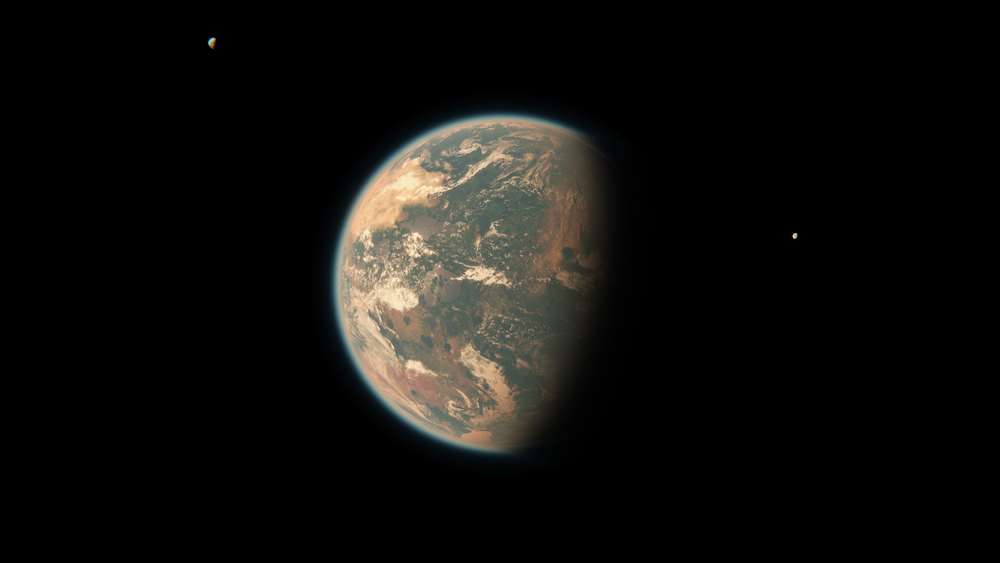Science has evolved rapidly in the past decade. It has enabled discoveries that have reshaped how we understand the universe, biology, health, and technology. These milestones are not just impressive achievements on their own, they are powerful tools that influence our lives and drive progress across the globe. From decoding the building blocks of life to detecting distant cosmic phenomena, here are ten of the most impactful scientific discoveries made over the last ten years.
Gravitational Waves Confirmed

One of the most groundbreaking discoveries of the decade came in 2015 when the LIGO (Laser Interferometer Gravitational-Wave Observatory) team detected gravitational waves for the first time. These ripples in spacetime, caused by the merger of two black holes over a billion light-years away, confirmed a major prediction of Albert Einstein’s general theory of relativity. The discovery, announced in 2016, opened an entirely new way of observing the universe. It marked the birth of gravitational wave astronomy, allowing scientists to explore cosmic events previously hidden from view.
The First Image of a Black Hole

Credit: NASA
In April 2019, the Event Horizon Telescope (EHT) released the first-ever photograph of a black hole. This supermassive black hole, located in the galaxy Messier 87, is about 55 million light-years away from Earth. The image showed a glowing ring of gas and dust surrounding a dark central region, or event horizon. Confirming theoretical models of black holes. The achievement was made possible by linking radio telescopes around the world to create a planet-sized observatory. Thus offering unprecedented resolution and ushering in a new era of observational astrophysics.
CRISPR-Cas9 Gene Editing Revolution

CRISPR-Cas9, first introduced in 2012, truly came into prominence in the past decade. This tool allows scientists to precisely cut and edit DNA sequences. This makes genetic engineering more accessible and efficient than ever before. It has been used to treat genetic conditions like sickle cell disease and has revolutionized research in agriculture, disease modeling, and biotechnology. In 2020, researchers Emmanuelle Charpentier and Jennifer Doudna were awarded the Nobel Prize in Chemistry for their discovery, reflecting the global importance of this gene-editing method.
Advances in mRNA Vaccine Technology

The COVID-19 pandemic of 2020 highlighted the enormous potential of mRNA vaccine technology. Although the science behind mRNA had been in development for years, the vaccines created by Pfizer-BioNTech and Moderna were the first to be widely deployed. These vaccines use synthetic mRNA to prompt the body to produce a harmless piece of the virus. This triggers an immune response. Their success not only helped to curb the pandemic but also paved the way for future vaccines against viruses like influenza and possibly HIV and certain cancers.
A Global Map of Human Cells

The Human Cell Atlas project, launched in 2016, set out to map every cell type in the human body. Over the decade, researchers succeeded in cataloguing hundreds of unique cell types across organs and tissues. This has enhanced our understanding of how cells function in health and disease. This in turn lays the groundwork for advancements in diagnostics, treatment personalization, and tissue regeneration. The project represents a milestone in biology, providing a cellular-level map of the human body for future research.
Read More: Scientists Discover Hidden Brain Switch That Can Instantly Calm Anxiety
Earth-Like Exoplanets Discovered

Thanks to NASA’s Kepler and TESS missions, scientists have discovered thousands of exoplanets over the past ten years. This includes several that may be capable of supporting life. One notable discovery is TOI 700 d, an Earth-sized planet located in its star’s habitable zone. Other candidates like Proxima Centauri b and LHS 1140 b have attracted interest due to their size, distance from their host stars, and potential for liquid water. These discoveries have energized the search for extraterrestrial life and prompted new missions to analyze exoplanet atmospheres.
Breakthroughs in Quantum Computing

Quantum computing, once a purely theoretical concept, took major steps toward reality in the past decade. In 2019, Google announced it had achieved quantum supremacy. This occurred by performing a calculation that would take a classical supercomputer thousands of years to complete. Though the task itself had limited practical use, the demonstration confirmed that quantum machines could surpass traditional ones for specific problems. Progress by companies like IBM and startups around the world is bringing us closer to using quantum computers for complex tasks in cryptography, medicine, and materials science.
A Deeper Understanding of Neutrinos

Neutrinos are among the most mysterious particles in physics. They are incredibly small, nearly massless, and pass through matter with ease. In recent years, scientists have made progress in understanding how neutrinos change from one type to another. A process known as oscillation. These findings, recognized by the Nobel Prize in Physics in 2015, have helped physicists refine their understanding of the Standard Model of particle physics and explore fundamental questions about the universe’s origin and matter-antimatter imbalance.
Climate Change Tipping Points Identified

Climate research over the last decade has shifted toward identifying potential tipping points in Earth’s climate systems. Scientists have found that certain events, such as Arctic ice melt or rainforest dieback, could trigger irreversible changes with global consequences. The 2021 IPCC report highlighted these dangers and the urgency of limiting global warming to avoid crossing such thresholds. Enhanced climate models and satellite data have given researchers better tools to predict these outcomes and inform policymakers of the risks tied to delayed action.
Artificial Intelligence Reshapes Scientific Research

Artificial intelligence has become a powerful force in scientific discovery. One of the most remarkable achievements came in 2020 when DeepMind’s AlphaFold AI accurately predicted the 3D structure of proteins from their amino acid sequences. This solved a long-standing problem in biology and could dramatically speed up drug development and disease research. AI is now used in chemistry, climate modeling, physics, and astronomy to process large datasets and identify patterns. This enables researchers to make discoveries faster and more efficiently.
An Extraordinary Journey

The scientific advances of the past decade have been extraordinary. They have deepened our understanding of the universe, improved our ability to fight disease, and introduced powerful new tools for discovery. From imaging black holes to editing genes, from mapping the human cell to exploring alien worlds, science continues to shape the future in profound ways. These ten discoveries represent only a portion of what has been achieved. But they additionally reflect the limitless potential of human curiosity and collaboration. As new technologies and theories emerge, the next decade promises to be just as exciting and transformative.
Read More: Science Proves Coin Tosses Aren’t 50/50
Disclaimer: This article was created with AI assistance and edited by a human for accuracy and clarity.

